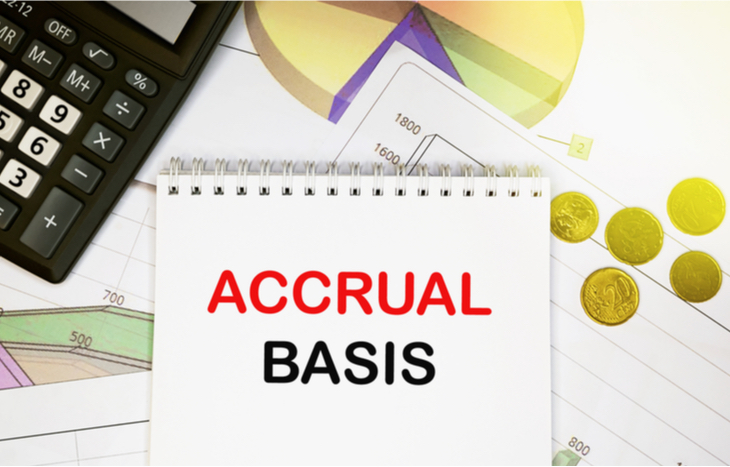What Is Accrual Basis Accounting?

Most businesses handle their accounting on an accrual basis. What is accrual basis accounting? It’s the practice of recording transactions at the point of origination, even if no money changes hands at that time. This is in contrast to cash accounting, which sees transactions recorded only when funds change hands. Accrual can seem confusing at first, but it makes more sense the more complex a business becomes and the more transactions it deals with.
Accrual basis accounting relies heavily on the matching principle. As a result, it makes it easier to understand transactions as they happen. This method represents the most accurate, up-to-date and comprehensive approach to accounting for companies big and small. Here’s how it works.

How Accrual Basis Works
Most businesses operate on credit. They extend credit to partners and customers (accounts receivable), and they take advantage of credit offered by vendors and suppliers (accounts payable). Credit gives a business more control over its cash flow by creating two separate events: the origination of a transaction and the settlement of that transaction. The difference is the net term.
For example, a business might sell a product to a customer on NET 15 terms. It might also take advantage of NET 30 terms from its suppliers. As a result, the time it takes for the company’s books to balance could be as high as 45 days. Moreover, money will change hands at different times – the customer might pay on day 15 of their NET 15 terms, while the business may pay its suppliers 20 days into its NET 30 term. The more transactions there are, the more difficult it is to manage cash flow.
Accrual basis accounting simplifies this process by recording transactions at the point of origination. It recognizes the credit process through accounts receivable and accounts payable line items. Accounted for appropriately, these transactions show up according to their future value as either an asset or a liability.
The Revenue Recognition Principle
The revenue recognition principle is the fundamental basis for the theory of accrual accounting. This principle states that “revenue is recognized when it’s earned, not when it’s received.” This is a very important distinction because it accounts for credit. It opens the door to both deferred and accrued revenue:
- Deferred revenue occurs when a customer pays before receiving goods or services.
- Accrued revenue occurs when a customer pays after receiving goods or services.
In both cases, the business recognizes revenue at the time it provides the good or service. This is the fundamental basis for another important principle: the matching principle.
The Matching Principle (Expense Recognition)
The matching principle involves recording the expense side of transactions at the point of origination and updating the balance sheet accordingly. This principle states that “expenses must be recorded in the same period as the income to which they are related.” It’s effectively the opposite of the revenue recognition principle.
For example, if a business receives a service in January but isn’t billed until February, the matching principle states that the expense gets recorded when it happens (January), not when it’s billed (February). The result is a more concise understanding of the company’s current and future expenses.
Accrual Accounting vs. Cash Accounting
Accrual basis accounting is ubiquitous among large companies because it best organizes a company’s balance sheet based on current and future assets and liabilities. This is also why it’s the basis for Generally Accepted Accounting Principles (GAAP). That said, it’s one of two modes of accounting – the other is cash accounting.
Cash accounting is typically used in personal finance and by small businesses that report direct transactions. Because cash changes hands at the time the business provides goods or services, there’s no need to defer or accrue revenue. Many small businesses and individuals also prefer this method because it accurately depicts cash on hand.
The drawback to cash basis accounting is wild swings and inconsistencies on the balance sheet. For example, if ABC Company provides services in January and pays its workers in the same month but doesn’t collect revenues until February, the company will show losses in January and comparatively inflated gains in February. This makes it difficult to understand cash flow over time. It’s one of the reasons the Tax Reform Act of 1986 prohibits C-corporations from using cash basis accounting methods.
The Benefits of Accrual Basis Accounting
Accrual basis accounting simplifies and clarifies how businesses use credit. It also organizes transactions in real time to prevent future complications. By organizing assets and liabilities on the balance sheet, businesses (and investors) get a clear, concise picture of a company’s financial health at any given time. As a result, businesses enjoy several key benefits:
- Compliance with GAAP and other FASB accounting practices
- Better financial consistency for the purposes of outside financing
- Standardization of accounting for the purposes of reporting
- Easier accounting and bookkeeping management as transactions increase.
While many companies begin on a cash accounting basis, almost every business invariably switches to accrual as it grows to take advantage of these benefits. Moreover, companies seeking to list on exchanges must utilize accrual basis per SEC compliance standards (GAAP).
Accrual is the Bottom Line in Accounting
Accrual basis accounting is the de facto method of accounting for companies that want a clear, accurate, up-to-date and organized picture of their financials at any given time. For this reason, it’s also the standard required of public companies.
That’s why it’s important to do your research before investing in a business. At Trade of the Day, a team of experts does the stock research for you! Sign up for the Trade of the Day e-letter below.
Investors who want to learn more about a company would do well to learn the principles of accrual basis accounting, including accounts payable and receivable, accrued revenue and accrued expenses. They all add up to an important financial understanding of a company and its cash flow operations.






